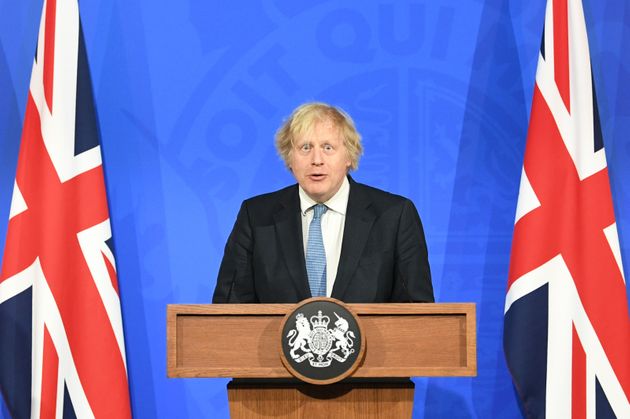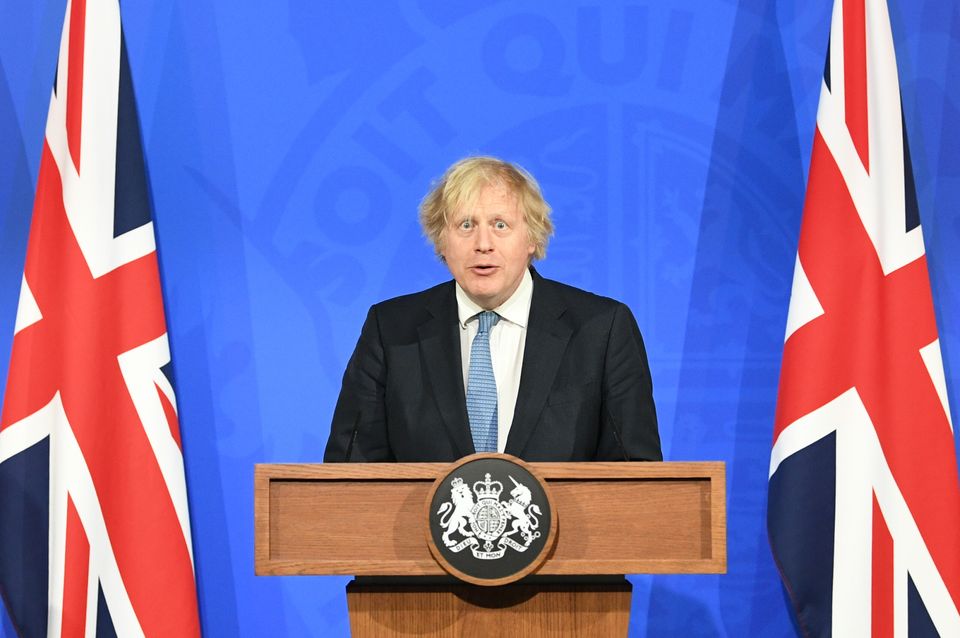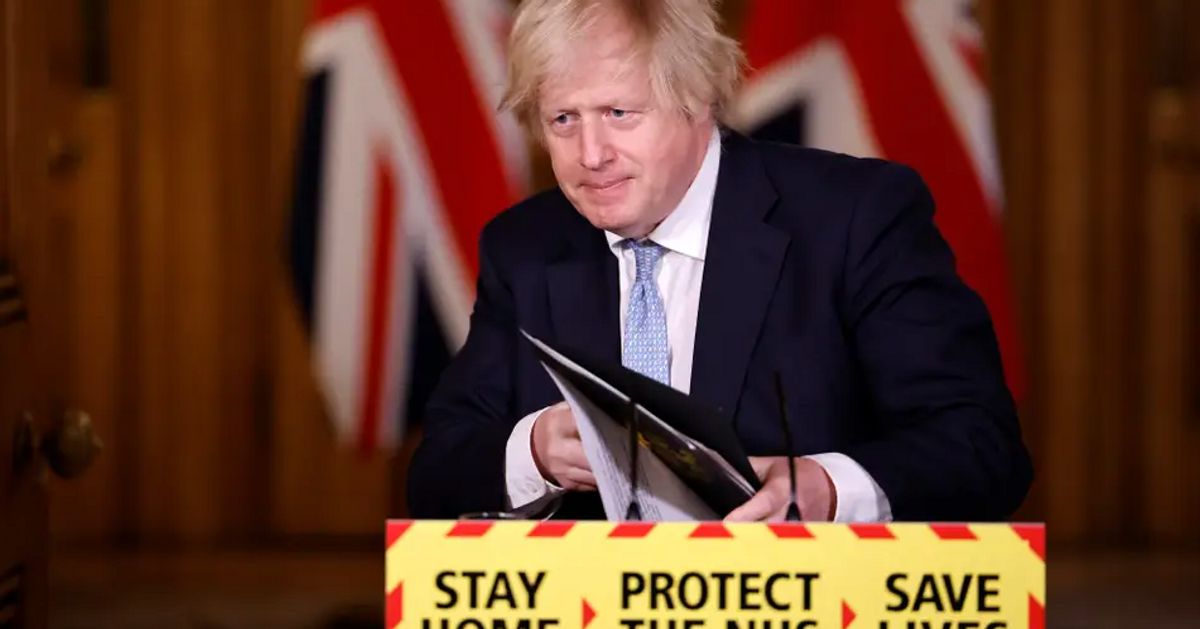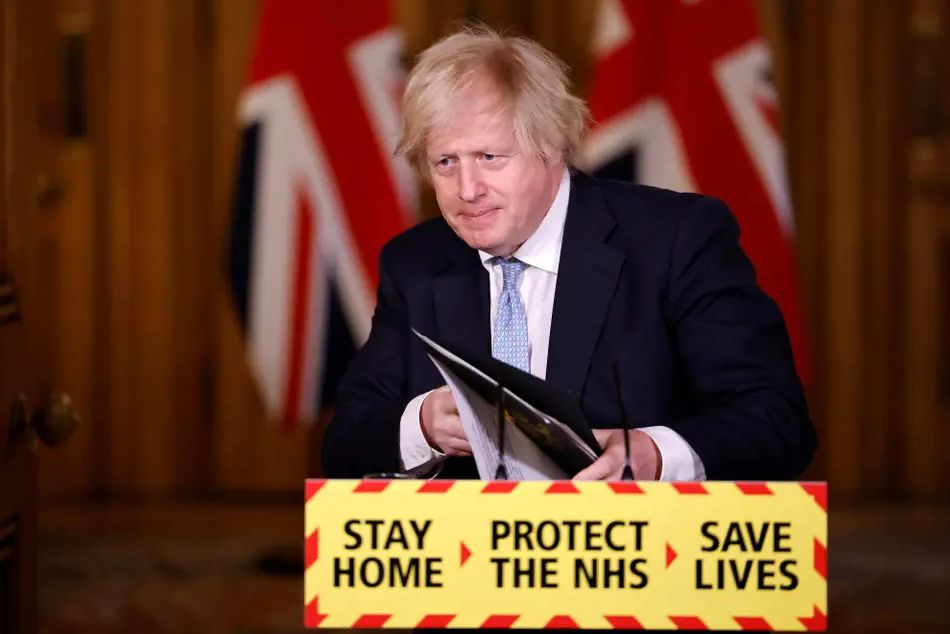
Boris Johnson has ordered an independent review of David Cameron’s lobbying of the government on behalf of finance firm Greensill Capital.
The prime minister’s official spokesperson announced that City lawyer Nigel Boardman will lead a probe into links between the company and ministers, including personal approaches made by Cameron.
MPs have demanded answers after it emerged that the former premier had personally emailed and texted Chancellor Rishi Sunak and others to help Greensill win Whitehall contracts and financial roles.
Sunak is under huge political pressure for his admission that he sent a text to Cameron in which he said he had “pushed” Treasury officials to look at helping the firm with access to multi-million pound Covid support schemes.
In a new move, Speaker Lindsay Hoyle granted shadow chancellor Anneliese Dodds an urgent question to be answered on Tuesday into the row.
Dodds’ question calls on Sunak to deliver “a statement on the process by which Greensill Capital was approved as a lender for the Coronavirus Large Business Interruption Loans Scheme”.
Cameron broke his silence on the row on Sunday, saying he should have acted “through only the most formal of channels” rather than personally texting Sunak.
Johnson wants the new probe to be completed “promptly”, the spokesperson said.
“The Cabinet Office is commissioning an independent review on behalf of the prime minister to establish the development and use of Supply Chain Finance and associated activities in government, and the role Greensill played in those,” he said.
“This independent review will also look at how contracts were secured and how business representatives engaged with government.
“The PM has called for the review to ensure government is completely transparent about such activities, and that the public can see for themselves if good value was secured for taxpayers money.”
Greensill collapsed into administration in March, which in turn put at risk one of its biggest clients, steelmaker Liberty Steel.
The Financial Times and Sunday Times have revealed how the firm’s founder Lex Greensill had unprecedented access within Whitehall as he sought to get the government to use his finance firm to offer loans for public services.
And Cameron, who was hired by Greensill after he left office, piled pressure onto ministers in the Treasury to grants access to Covid support funds for the firm over the past year.
The ex-PM also lobbied health secretary Matt Hancock. He brought Lex Greensill and director Bill Crothers to private drinks with Hancock in 2019, when they lobbied for the adoption of a payment scheme for doctors and nurses that was later rolled out within the NHS.
After weeks of refusing to comment, Cameron issued a statement on Sunday to the PA news agency, in which he said that having “reflected on this at length” he accepts there are “important lessons to be learnt”.
On Monday morning, former PM Gordon Brown called for tougher rules to prevent ex ministers lobbying within government, claiming it “brings public service into disrepute”.
Cameron insists that he broke no codes of conduct on former ministers’ links to government, but several MPs from all parties have called for tighter rules.
Labour insists that Sunak has questions to answer over whether he broke the ministerial code in “pushing” officials to help Greensill on Cameron’s behalf.
The chancellor last week voluntarily published his texts to the ex-PM under the Freedom of Information Act, although Cameron’s texts have not yet been published. Treasury sources insist that officials rebuffed Cameron’s main request in the proper way.
Boardman, who has spent years as a partner at the City law firm Slaughter and May, is a non-executive board member of the Department for Business and chair of the government’s Audit, Risk and Assurance committee.
He conducted a review of the Cabinet Office’s procurement processes which was published in December, 2020. “He seems like he is an experienced person to lead this independent review,” the PM’s spokesperson said.
But shadow Cabinet Office minister Rachel Reeves said: “This has all the hallmarks of another cover-up by the Conservatives.
“Just as with the inquiry into Priti Patel’s alleged bullying, this is another Conservative Government attempt to push bad behaviour into the long grass and hope the British public forgets.
“The Conservatives can’t be trusted to yet again mark their own homework. We need answers on Greensill now – that means key players in this cronyism scandal like David Cameron, Rishi Sunak and Matt Hancock appearing openly in front of Parliament as soon as possible to answer questions.”
Boardman’s former firm Slaughter and May, which is part of the so-called “Magic Circle” of corporate law companies, came under fire in 2018 during collapse of public-private sector construction giant Carillion.
Labour had accused such corporate law firms of “circling Carillion like vultures, squeezing every last penny of fee income as the company was going down”.
Boardman, whose late father was Tory cabinet minister Tom Boardman, would “access to the documents that he needs”, No.10 said.
Asked whether Johnson believed lobbying rules needed to be changed, the prime minister’s official spokesperson replied: “As you have seen from what we have announced today, the prime minister understands the significant public interest in this and wants to look at the issues raised and get more details.
“But I think you can judge from his actions.”
























